Hokkaido University-The University of Melbourne Joint Workshops on Indigenous Studies
A series of three workshops on Indigenous Studies were held at Hokkaido University from June 27 through June 29, 2023. The workshops were jointly organized by the Center for Ainu and Indigenous Studies (CAIS), Global Institution for Collaborative Research and Education (GI-CoRE), and Faculty of Health Sciences at Hokkaido University, and the Indigenous Knowledge Institute (IKI) at the University of Melbourne; they were the capstone of a week-long visit by Indigenous researchers from the University of Melbourne to Hokkaido University.
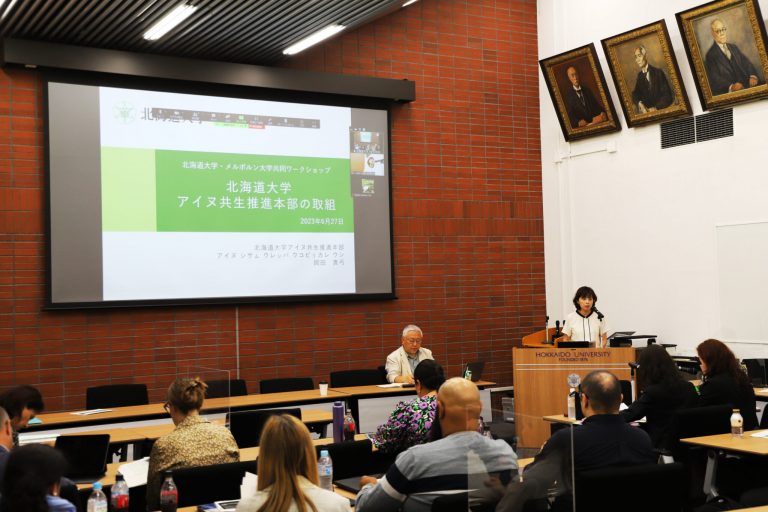
Hokkaido University and the University of Melbourne have a deep ongoing relationship grounded in research collaborations in the fields of Zoonoses Control and Chemistry. Indigenous affairs are a crucial field for both universities, which have vibrant research centers in the field. The CAIS has enriched understanding with Ainu communities across Hokkaido; in June 2023, the University of Melbourne adopted Murmuk Djerring, their Indigenous Strategy for 2023–2027, which brings together various ongoing initiatives in indigenous affairs.
The first workshop, on University Management and Indigenous People, aimed at contextualizing the importance of ethical research practices in Indigenous Studies.
The speakers from Hokkaido University addressed the history of perceptions of and relationships between the Ainu and the ethnic Japanese peoples, focusing on the interactions between the Ainu and Hokkaido University, which have resulted in the establishment of the CAIS and the Office of Ainu Relations and Initiatives. Koji Yuki, Co-representative of the Sapporo Ainu Association, spoke of similar matters from the contemporary Ainu viewpoint, of their dreams and desires for a revival of their way of life.
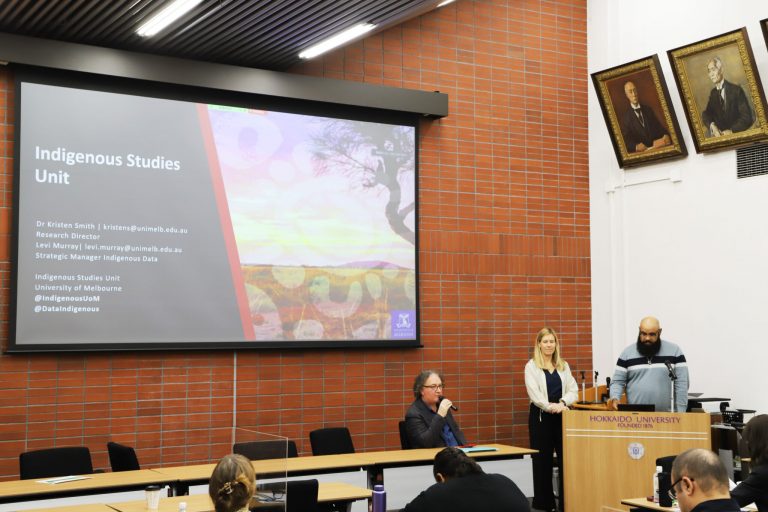
The speakers from the University of Melbourne spoke of the efforts that the University is making in promoting the preservation and revival of Aboriginal and Torres Strait Islander culture and history. These efforts include managing and funding research into various indigenous concerns, honoring and recognizing indigenous knowledge, using data-driven approaches to improve outcomes and capabilities of Aboriginal and Torres Strait Islander peoples, and pursuing international collaborations in indigenous studies across the world.
“Research in Indigenous Studies requires the consent and participation of Indigenous people and communities, requiring an honest and deep engagement with Indigenous communities,” commented Professor Aaron Corn, Inaugural Director of the IKI. “These workshops include researchers who are indigenous, and they are vital to the field.”
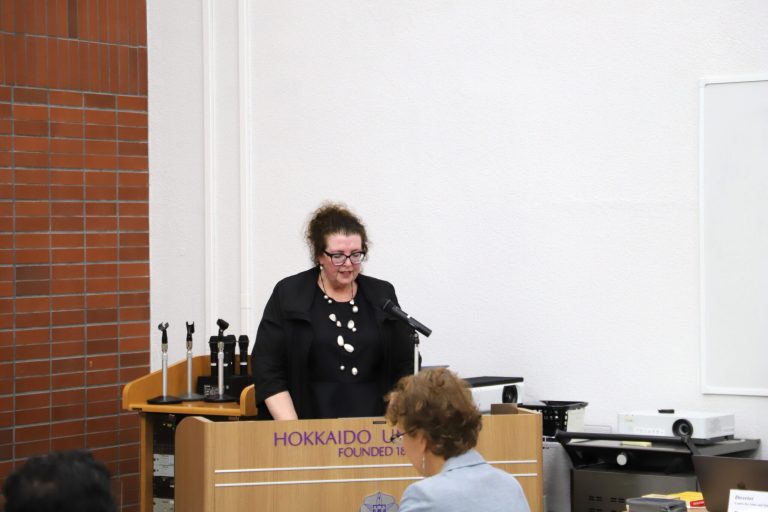
The second workshop was a conference on Indigenous Studies. The keynote address was a presentation by Professor Joe Watkins of the GI-CoRE on his year in Hokkaido researching and interacting with the Ainu communities. Professor Watkins is a member of the Choctaw Nation of Oklahoma, and thus occupies quite a unique position as an Indigenous researcher from the USA studying indigenous communities in Japan. Watkins found that his knowledge and experiences were also of great interest to the Ainu people, as they are interested in understanding how indigenous affairs are governed in other countries, which will aid in their work to increase their sovereignty.
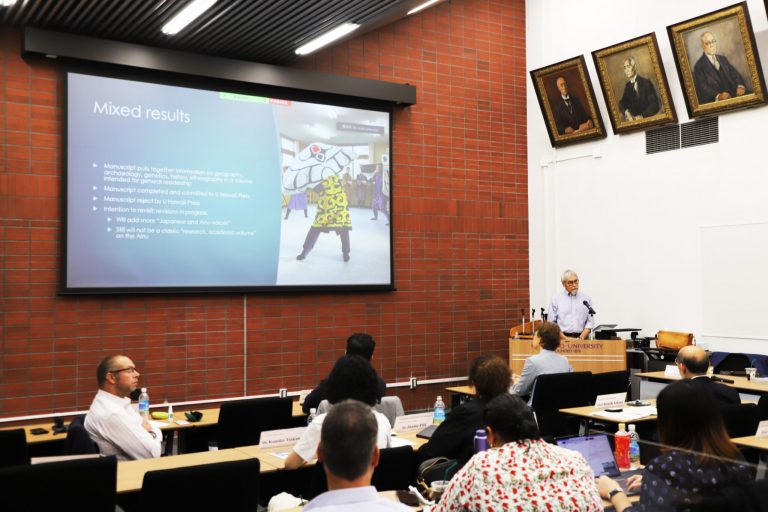
Professor Barry Judd, Deputy Vice-Chancellor (Indigenous) at the University of Melbourne, concluded the conference by relating his personal experiences as an indigenous person in Australia as it gradually works to undo the discrimination and harms faced by the Aboriginal and Torres Strait Islander peoples and their cultures.
The third workshop was the International Workshop on Indigenous Health. There were three presentations each from Hokkaido University and from the University of Melbourne, dealing with health and wellbeing of Indigenous communities in Zambia, Cameroon and Australia. The workshop focused on how approaches to health and wellbeing must be centered on and led by the communities that they target; only with the complete buy-in from the communities can these initiatives succeed.
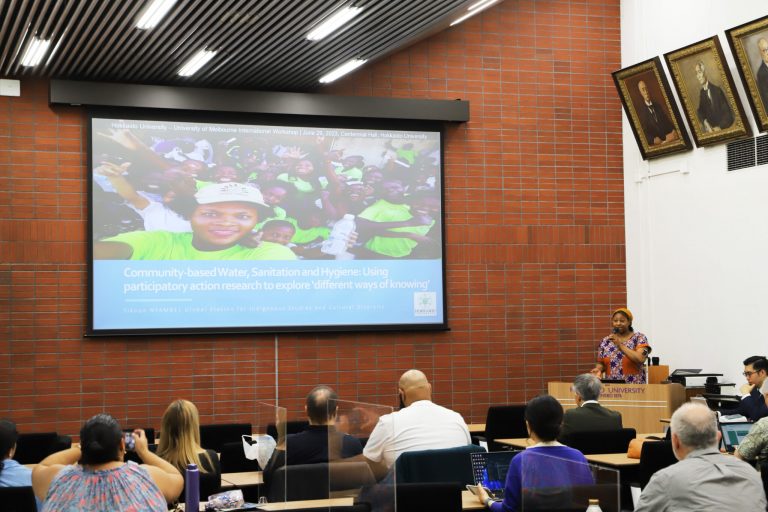
The presentations from Hokkaido University explored water, sanitation and hygiene (WASH) among the peri-urban communities of Lusaka, Zambia; changes in food security and nutrition in Tonga People communities living near Lake Kariba, Zambia, based on their distance from the lake and their occupations; and, the indigenous approach to sanitation among the Baka peoples in Cameroon, an ethnic and cultural minority.
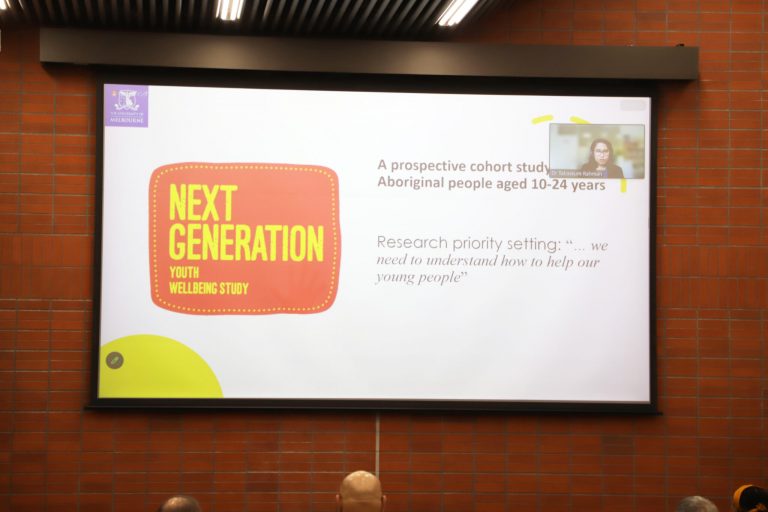
The speakers from the University of Melbourne discussed indigenous-led and -centric approaches to improving health and wellbeing in Indigenous Australians; social determinants of health and how they relate to health and well-being of indigenous Australians; and, Onemda: Aboriginal and Torres Strait Islander health and wellbeing projects where the Indigenous Studies Unit is invited to help communities improve outcomes.
Professor Hirofumi Kato (Director, CAIS) values the workshop and ongoing collaboration with the University of Melbourne. “Japan is still very far behind in understanding and addressing indigenous issues,” he said. “The collaboration with Melbourne provides valuable perspectives on research and engagement, as well as the role Universities can play in resolving these issues.”
Written by Sohail Keegan Pinto
